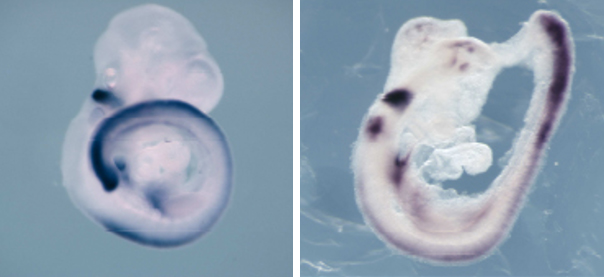Science Advances: The genes that give the embryonic cells the maximum potential also control the process of their differentiation.
The genes that make a cell pluripotent and have the capacity to become any other type of cell during the embryonic stage also influence the process by which cells choose their cellular identity and that of their descendants. This is demonstrated by a study conducted by the CNIC, in collaboration with the Severo Ochoa Center for Molecular Biology, a joint center of the Higher Council for Scientific Research (CSIC) and the Autónoma University of Madrid (UAM), whose results have been published in Science Advances.
After fertilization, the zygote is generated, a single cell from which a complete organism will develop. In the first divisions, the cells are equivalent, they have a great capacity to proliferate and a plasticity that will allow them to develop cells as different as a neuron or a hepatocyte. However, this power is progressively lost throughout embryonic development, as the cells make lineage decisions and differentiate themselves.
Until now it was thought that these genes only made the pluripotent cell, but we have seen that they also influence the next process, that of differentiation. After implantation in the uterus, the embryo undergoes a process called gastrulation, in which the cells choose their fate within the body and at this point pluripotency as such ceases to exist. However, the expression of pluripotency factors continues a little longer in time and our goal has been to understand why these factors continue to be expressed and what their function is, beyond pluripotency,", explains the researcher, Miguel Manzanares.
The ability to generate any type of cell is maintained in the embryo thanks to the action of the so-called pluripotency factors (OCT4, NANOG and SOX2, among others) that are only expressed in the early stages of development, while in an adult organism they are turned off.
The current research has focused mainly on OCT4, which is one of the four factors that in 2006 were overexpressed by Shinya Yamanaka to reprogram adult fibroblasts (cells that contribute to tissue formation) and convert them into induced stem cells. She was awarded the Nobel Prize in Physiology and Medicine in 2012 for this research.
To study this process in detail, the research team has characterized, both in vivo and in vitro, how the OCT4 factor influences the regulation of Hox genes, which are responsible for attributing identity to the cells of the anteroposterior axis of the embryo
"There are many projects on pluripotency, however very little is known about how this network is disassembled to allow determination of a specific cell lineage. Understanding pluripotency is the Rosetta stone for unraveling many important and complex processes such as tissue regeneration, rejuvenation or cancer", concludes Manzanares.
- María Tiana, Elena Lopez-Jimenez, Julio Sainz de Aja, Antonio Barral, Jesus Victorino, Claudio Badia-Careaga, Isabel Rollan, Raquel Rouco, Elisa Santos, Hector Sanchez-Iranzo, Rafael D. Acemel, Carlos Torroja, Javier Adan, Eduardo Andres-Leon, Jose Luis Gomez-Skarmeta, Giovanna Giovinazzo, Fatima Sanchez-Cabo, Miguel Manzanares. Pluripotency factors regulate the onset of Hox cluster activation in the early embryo. Science Advances. DOI: 10.1126/sciadv.abo3583











